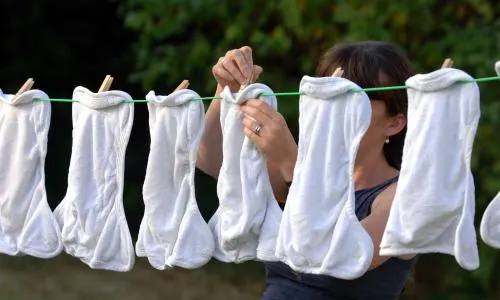Environmental campaigners have called on the UK government to take immediate action following a new analysis which found a significant difference between the carbon footprints of washable and disposable nappies.
A report commissioned by the Department for Environment, Food and Rural Affairs (Defra) shows that Reusable nappies have 25% less global heating potential compared with single-use nappies.
The environmental impact of production was also shown to be nearly nine times greater for single-use nappies, and nearly 10 times greater when it came to their disposal.
However, the report paints a mixed picture, with reusable nappies given a worse impact score for 11 of 18 categories – mainly associated with water and electricity usage when washing and drying.
Read also: New report shows billions more needed to protect tropical forests
Disposable nappies are also said to be one of the biggest single contributors to plastic waste worldwide, but a 2005 life cycle analysis declared there was “little or no difference between the environmental impact of reusable and disposable nappies”. This resulted in a lack of action from policymakers, according to campaigners, who say the government has a responsibility to make it easier for parents to switch to reusables.
Reacting, Elisabeth Whitebread of the Nappy Alliance campaign group said, “We’ve seen the British government be really bold on lots of stuff to do with single-use plastic,”. “We’ve had the first plastic packaging tax in the world, we’ve recently seen them banning single-use plastic cutlery and plates, but by the number of items, as well as the weight and volume, nappies represent a much greater contribution to single-use plastic waste.
Speaking further, she said, “This clearly needs policy initiative but also awareness raising – so many people don’t even think about nappies as a single-use plastic.”
On his part, Hilary Vick, a founder of the washable nappy service Nappy Ever After said, “The playing field is unequal because parents and carers have the task and the expense of washing nappies and the time it takes, and yet the disposal of nappies is free. They’re readily available in supermarkets, which makes it seem normal – governments and local authorities have a responsibility to go against those norms.”
While Defra’s report could be a significant step forward for the reusable industry, single-use nappies were only found to leave a worse impact in seven of the categories, including global heating potential, land use, fossil resource scarcity and water use in manufacturing. But campaigners say these effects are particularly critical in light of the climate crisis.
Story was adapted from the Guardian.
